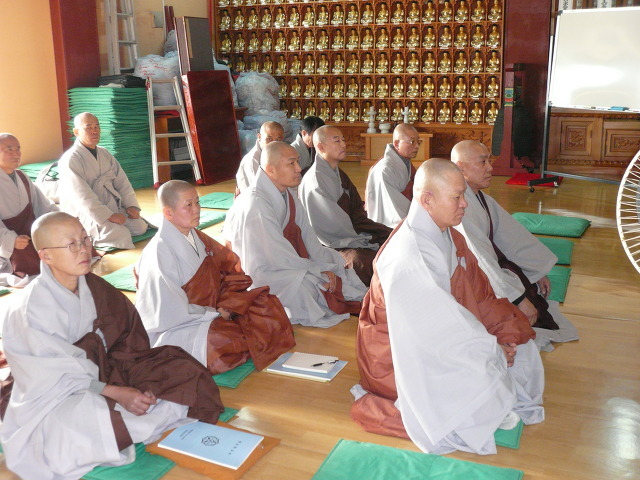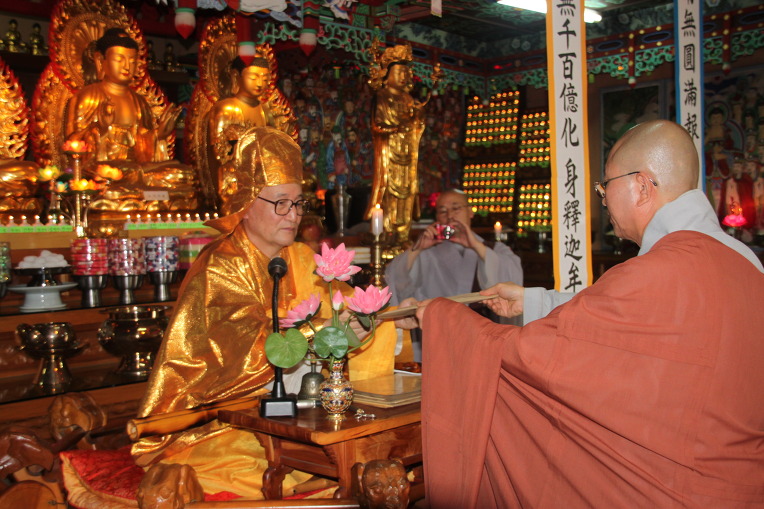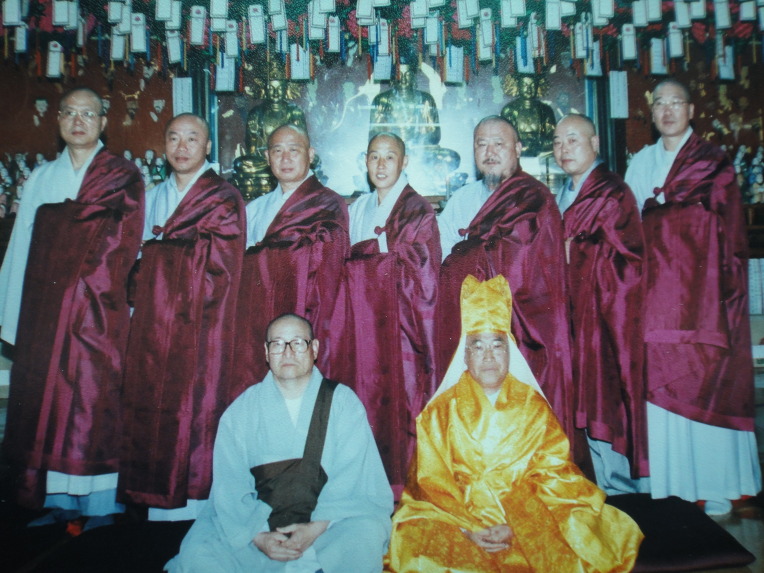From Wikipedia, the free encyclopedia
Pure Land Buddhism (simplified Chinese: 净土宗; traditional Chinese: 淨土宗; pinyin: Jìngtǔzōng; Japanese: 浄土仏教[1], Jōdo bukkyō; Korean: 정토종, jeongtojong; Vietnamese: Tịnh Độ Tông), also referred to as Amidism[2][3] in English, is a broad branch of Mahāyāna Buddhism and one of the most widely practiced traditions of Buddhism in East Asia. Pure Land is a tradition of Buddhist teachings that are focused on Amitābha Buddha. Pure Land oriented practices and concepts are found within basic Mahāyāna Buddhist cosmology, and form an important component of the Mahāyāna Buddhist traditions of China, Japan, Korea, Vietnam, and Tibet. The term "Pure Land Buddhism" is used to describe both the Pure Land soteriology of Mahāyāna Buddhism, which may be better understood as "Pure Land traditions" or "Pure Land teachings," and the separate Pure Land sects that developed in Japan. In Japanese Buddhism, Pure Land teachings developed into independent institutional sects, as can be seen in the Jōdo-shū and Jōdo Shinshū schools.[4]
Pure Land Buddhism (simplified Chinese: 净土宗; traditional Chinese: 淨土宗; pinyin: Jìngtǔzōng; Japanese: 浄土仏教[1], Jōdo bukkyō; Korean: 정토종, jeongtojong; Vietnamese: Tịnh Độ Tông), also referred to as Amidism[2][3] in English, is a broad branch of Mahāyāna Buddhism and one of the most widely practiced traditions of Buddhism in East Asia. Pure Land is a tradition of Buddhist teachings that are focused on Amitābha Buddha. Pure Land oriented practices and concepts are found within basic Mahāyāna Buddhist cosmology, and form an important component of the Mahāyāna Buddhist traditions of China, Japan, Korea, Vietnam, and Tibet. The term "Pure Land Buddhism" is used to describe both the Pure Land soteriology of Mahāyāna Buddhism, which may be better understood as "Pure Land traditions" or "Pure Land teachings," and the separate Pure Land sects that developed in Japan. In Japanese Buddhism, Pure Land teachings developed into independent institutional sects, as can be seen in the Jōdo-shū and Jōdo Shinshū schools.[4]







No comments:
Post a Comment